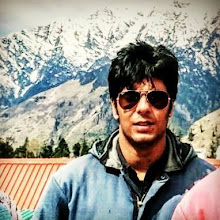If I could
choose 4 words to describe Margarita with a straw, they’d be – bold, innocent,
revolutionary and beautiful. Director Shonali Bose gives film enthusiasts a
recipe so strong, so rich, that its aftertaste could be felt long after one stepped
out of the theatre.
Kalki Koechlin
plays Laila, a Delhi girl with cerebral palsy. For a girl with minimum motor
skills, Laila is intelligent, talented and not one to let her disability get in
the way of dreaming big, and achieving those dreams. Her life is a constant
struggle about coming to terms with this disability, and seeking to enjoy life
like the normal people. She gets admitted into the New York University,
following which she relocates to the US with her mother, played by Revathy. Her
life changes when she meets Khanum, played by Sayani Gupta, a blind Pakistani
girl, who makes Laila challenge her orientation. From here begins Laila’s
journey into exploration and rediscovery.
Kalki’s performance as Laila is phenomenal. It is a surprise how effortlessly the actress slides into the shoes of the spastic Laila. Her expressions are raw, earnest, and extremely likeable.
Revathy is at her very best as the mother, encouraging her daughter to reach the highest extent of success, at every step in her life. Her character is beautiful and endearing, in the manner that she induces the gentleness and warmth of a mother’s presence even in the viewers.
Revathy is at her very best as the mother, encouraging her daughter to reach the highest extent of success, at every step in her life. Her character is beautiful and endearing, in the manner that she induces the gentleness and warmth of a mother’s presence even in the viewers.
Sound mixing plays an effective part in the narrative. The use of silence and minimal sound to accentuate the depth in particular scenes was just breathtaking. Mickey McCleary provides the music composition for the film. The music, coupled with the magic of Prasoon Joshi’s lyrics, amplifies the emotion of the movie, and though there is a total of three songs, each one is memorable, especially Dusokute, a hummable rock number composed and sung by Joi Barua.
MWAS is
emotionally charged, funny, and thought-provoking in equal measure.
Free-flowing, the film knows exactly what it is about, and takes the audience
on a beautiful journey, while teaching a deep lesson about being open to the
beauty of life and looking to greener pastures while belittling your problems
and difficulties. Shonali Bose displays incredible genius, and it is evident,
right from the start how truly invested she is into penning down this empowering
story of a girl who won’t bow down to her physical limitations. Through the
film, she breaks through various fundamental taboos of Bollywood revolving
around display of sexually-charged situations, and homosexuality. Every
depiction is unfettered, and reflective of the deepest facets and desires of
the human being. That’s how truthful this movie is.



0 comments:
Post a Comment